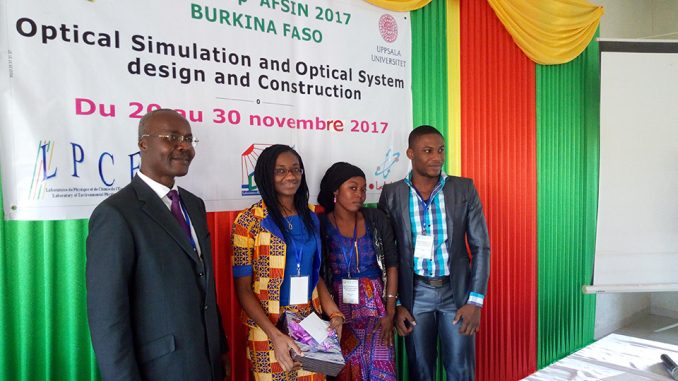
Topic: Optical simulation
Describe the overall goals of the activity and the strategy to achieve them.
The overall goals of our network are to contribute, to the benefit of the laboratories in members’ countries, to the development of international standard research activities in the fields of applied spectroscopy and spectral imaging. The strategy to achieve our overall goals is to organize annual workshops for the training of students and young scientists in the areas of optics, photonics and imaging techniques applied to medicine, agriculture and the environment. We therefore build instruments for realistic diagnostic tools related to tropical diseases such as malaria, pollution monitoring or natural disasters affecting agriculture and environment, and to use optical diagnostics for quality control and improved crop yield.
Give a brief history of the project/network.
The network was created after a workshop organized in 2008 in Cape Coast (Ghana) on the design and implementation of a multispectral and multimodal microscope, with an emphasis on staining-free, rapid and accurate malaria diagnosis; at the end of this workshop, the six participating countries, received a copy of the instrument as a gift from ISP. Because of the capabilities of the instrument, we then decided to continue working on this instrument and develop similar ones with application to medicine, agriculture and environment, through a network.
Give the scientific background, relevance, and justification. Indicate how activities align with applicable policy/strategy (e.g. at University and National level).
Spectral Imaging is a fast-merging area for interdisciplinary activities; it has the advantages to associate number specialties as optics, spectroscopy, image processing, statistical multivariate analysis, with applications from macroscopic to microscopic specimens, in life science and biodiversity. Spectral imaging is a promising instrument-based strategy to address numbers of African development issues. It is both an ideal scientific training support and a technology for sustainable development in African countries.
Give an overall description of research activities carried out in 2017.
One workshop was organized in Ouagadougou (Burkina-Faso), from 20th to 30th November 2015, on Optical System design and simulation. During this workshop, the participants from the Countries’ nodes laboratories were trained in optical microscopy and remote sensing spectroscopy techniques and the tools to design these types of experimental set-ups and predict the results. The participants were also trained on optical signal processing with an emphasis on imaging systems.
Give the main research results in 2017.
- Progress in the optical system improvement for malaria diagnosis by exploring various configurations;
- Progress in the optical system improvement for plant leaves diseases earlier detection;
- Improvement of the detection and data analysis of the remote sensing system for mosquito’s activities studies and forecast;
- Capacity building in terms of optical instrumentation design and simulation techniques.